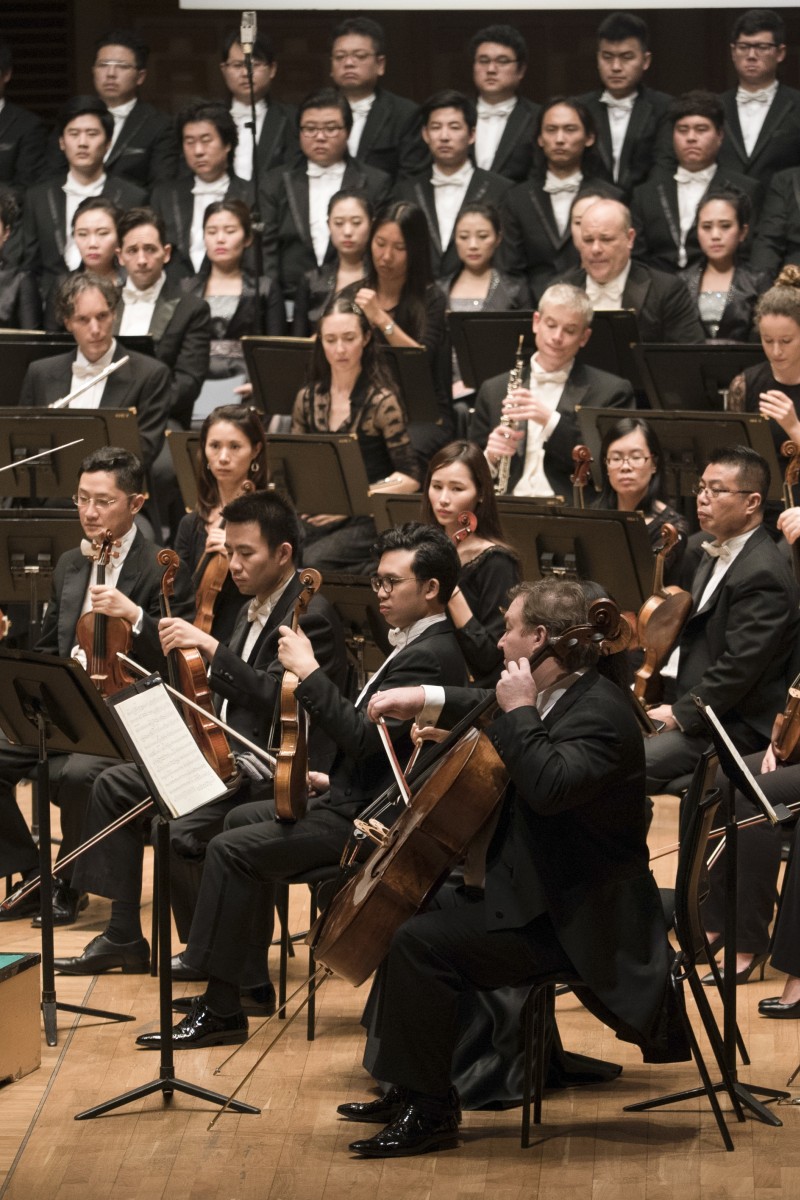
Face Off: Should art and music lessons be compulsory in secondary school?
Each week, our two teenagers will debate a hot topic. This week...
 Hong Kong Philharmonic Orchestra music director Jaap van Zweden conducts the ensemble.
Hong Kong Philharmonic Orchestra music director Jaap van Zweden conducts the ensemble.Patricia Abundo, 18, Auckland University of Technology
People who are against art and music education may argue that not all students enjoy these particular subjects, or even have the talent to do well in them. Furthermore, many consider core subjects, such as maths, English and science, to be more important.
However, if subjects chosen were based purely on individual interests, many would not choose core subjects, because not everyone enjoys or excels at them in the same way.
Several surveys have been conducted over the years, suggesting a close link between art, music and overall school performance. The website Online Colleges points to the 2011 study, “Reinvesting in Arts Education”, which looked at the school system in the US state of Maryland. It claimed that “integrating arts with other subjects can help raise achievement levels”, and linked visual arts to improved literacy and playing an instrument to improved numeracy skills.
US-based news site The Huffington Post states that maths isn’t just about being good with numbers; it also helps enhance creative problem-solving skills. The same can be said for art and music education. Art doesn’t necessarily refer only to painting or drawing, while music is much more than playing an instrument. These classes enable students to develop greater life skills such as perspective, cultural understanding and creativity.
For students who are academically weaker, arts classes may also serve as alternative learning pathways. For students with no previous experience, having these compulsory classes in school may spark an interest in a particular aspect of art or music.
Besides, if students do find that they enjoy the classes, their skills can be nurtured. It’s important for schools to show that there are a wide range of careers open to students. Overall, compulsory art and music lessons are very beneficial to students in the long term.
Rai Anna-L, 17, University of Hong Kong
Countless surveys sing the praises of the benefits of studying art or music. Findings have revealed that students who have access to these subjects at school tend to perform better in non-arts subjects, like English and maths.
However, surveys have also found that the positive effects of studying arts subjects vary greatly depending on the quality of classes, teaching and guidance. Therefore, introducing compulsory arts education in all secondary schools may not be a wise move as some might lack the resources to offer the level of teaching needed for students to reap the benefits.
Another aspect that should not be overlooked is that advantages from these subjects are usually gained by those who are already good at them, or passionate about art and culture in the first place.
Speaking as someone who is not artistically gifted, I’ve noticed that many students do not take these lessons seriously.
Many half-heartedly do the bare minimum simply to gain a pass, and spend the remaining time chattering away with peers. By doing so, both resources and time are wasted, and the so-called benefits are not felt.
Others may argue Hong Kong’s secondary students need to have subjects where they are not burdened by academic stress. This can be done through other activities such as reading and physical education.
Art and music are not everyone’s cup of tea. Should they be made compulsory for all schools, students may see them as a chore – especially if they struggle with those subjects.
Rather than making arts lessons mandatory, allowing students to have alternative, non-academic lessons might inspire them to properly utilise their time and the school’s resources. Let’s keep this in mind: one size does not fit all.